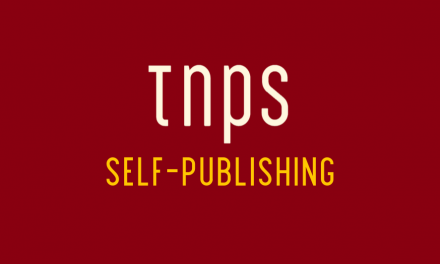The immediate appeal of the metaverse for book publishers, especially those in the comics, graphic novels and fantasy sectors, will obviously be the gaming element, but the South China Morning Post experiment suggests there might be wider opportunities for book publishers across fiction, non-fiction and especially education as the metaverse opportunities develop and become mainstream.
South China Morning Post (SCMP) is among the first publishing sector operators to explore the metaverse opportunities, reports What New In Publishing.
SCMP readers can for the remainder of this month sign up to a “unique interactive digital experience on the metaverse”..
Per What’s New In Publishing,
The Sandbox is a virtual world where players can build, own, and monetize their gaming experiences on the blockchain. SAND is the native token on the platform, an ERC-20 asset running on the Ethereum (ETH) and Polygon (MATIC) blockchains. The Sandbox Alpha Seasons are a series of gaming events where players can complete quests throughout the season to have a chance to earn SAND rewards. Alpha Season 2 is the second round of Alpha testing by The Sandbox which launched earlier this month.
The immediate appeal of the metaverse for book publishers, especially those in the comics, graphic novels and fantasy sectors, will obviously be the gaming element, but the SCMP experiment suggests there might be wider opportunities for book publishers across fiction, non-fiction and especially education as the metaverse opportunities develop and become mainstream.
This from What’s New in Publishing describing SCMP’s inaugural experience:
SCMP’s partnership with The Sandbox has created a distinct virtual world bringing the Hong Kong Star Ferry and Hong Kong Central Pier to life – two iconic Hong Kong landmarks – as well as a place where players can build, own, monetize, and explore.
One of the metaverse experiences around the Star Ferry is the ability to teleport back in time to learn about the landmark’s history by completing various quests.
SCMP’s 118 years of reporting and extensive library of photographs gave us the opportunity to breathe new life into historical locations in the metaverse.
Just what the wider lessons are for book publishers it’s too soon to tell, but clearly there are direct, in situ financial gains to be had here as well as the opportunity to redirect consumers to more traditional publishing formats.
The global book publishing industry needs to be watching and be ready to try out new opportunities as they emerge, not retreat into the protective cocoon of denial that we’ve seen so often (and still see today in many parts of the world) whenever digital advances offer new ways of engagement.
The metaverse is not, for now, “the next big thing”, but is it here and it is going to develop, and develop fast.
The history of book publishing’s engagement with digital opportunity is, let’s be frank, pretty depressing. Even in the now mature digital markets most publishers at first resisted and eschewed digital innovations, be it ebooks, social media, digital audio, digital streaming… you name it… publishers first screamed that the sky was falling, decried digital as not “real”, reading, invoked nonsense bogeyman ideas like “screen fatigue” and “diminishing attention spans” to decry digital’s benefits, and then woke up one morning to find themselves left behind.
The metaverse isn’t going to go away. But it is not a threat to print, nor a threat to reading, and no, the sky will not fall.
Maybe the metaverse will remain, for the immediate foreseeable future, a lucrative sideline for book publishers, like AR and VR, while those publishers that do not want to engage are not missing out on much. It’s way too earlier to tell.
Or maybe it will, like social media, AI, digital audio, ebooks, the Kindle store, digital subscription and every other “publishing-is-doomed” innovation that scared the crap out of the publishing fraternity, become an indispensable part of the book publisher’s armoury and an indispensable contributor to publishing’s bottom line.
One thing is for sure: the industry cannot afford to look the other way.
But the idea of book publishing moving with the times is a triumph of hope over experience, so it probably will.
This post first appeared on the TNPS newsletter on LinkedIn.





